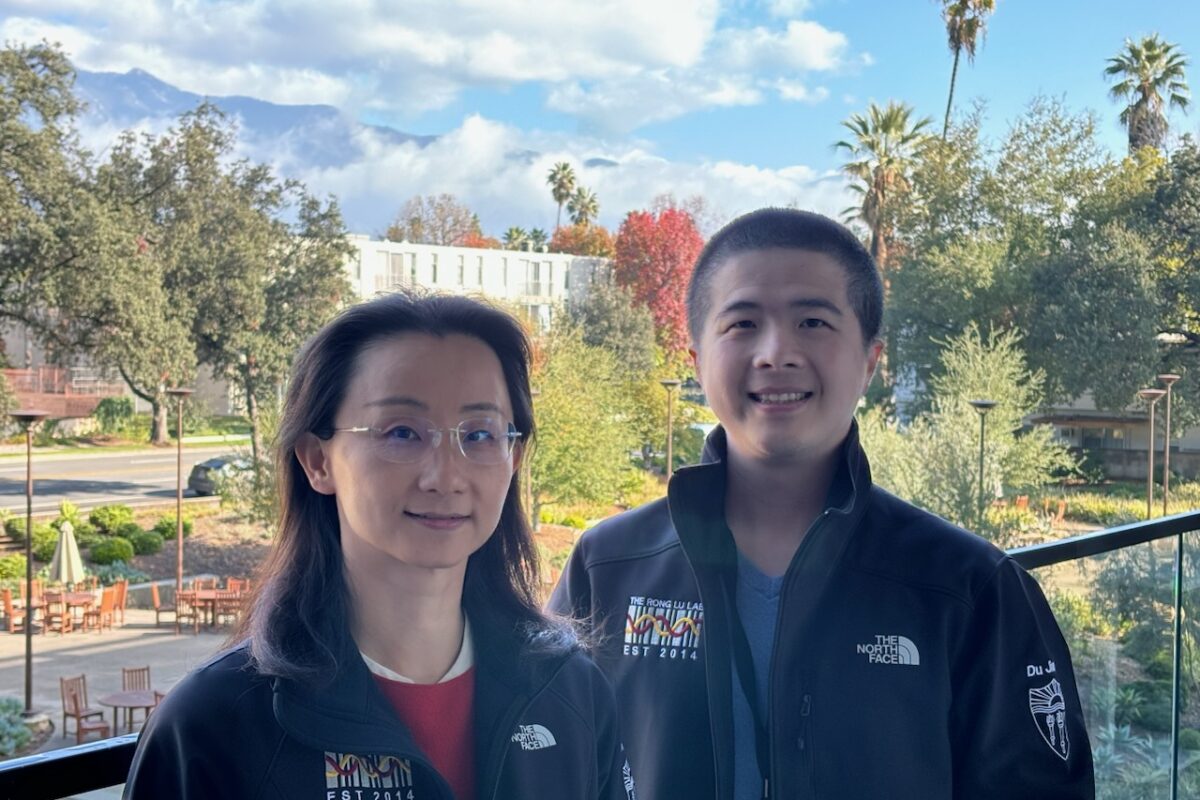
As people age or become ill, their immune systems can become exhausted and less capable of fighting off viruses such as the flu or COVID-19. In a new mouse study funded in part by the National Institutes of Health (NIH) and published in Science Advances, researchers from the USC Stem Cell lab of Rong Lu describe how specific gene activity could potentially enhance immune cell production.
“Hematopoietic stem cells, or HSCs, produce blood and immune cells, but not all HSCs are equally productive,” said the study’s corresponding author Rong Lu, PhD, who is an associate professor of stem cell biology and regenerative medicine, biomedical engineering, medicine, and gerontology at USC, and a Leukemia & Lymphoma Society Scholar. “We wanted to understand the mechanism of why some stem cells produce more immune cells, while other stem cells produce fewer.”
With this goal in mind, first author Du Jiang, PhD, and his colleagues in the in the Lu Lab at the Keck School of Medicine of USC pioneered new techniques for understanding the quantitative association between immune cell production and gene expression in lab mice. The scientists labeled individual stem cells with genetic “barcodes” to track their immune cell production. They then correlated the barcode tracking with measurements of gene expression activity. They also developed innovative bioinformatics approaches to characterize their quantitative association.
By leveraging these technical advances, the scientists identified nearly 40 genes—including genes associated with diseases such as myelodysplastic syndrome, a type of cancer caused by abnormal blood-forming cells—that are related to immune cell production. They discovered associations between the activity of these genes and both the quantity and variety of immune cells produced. For example, certain genes are associated with the production of lymphoid cells, others with myeloid cells, and still others with a healthy balance of various immune cell types.
A few of the genes showed what the scientists described as a “constant association” with the production of lymphocytes only. In other words, at any level of lymphocyte output, gene expression was always associated with lymphocyte production.
A few other genes had a “discrete association” with the production of lymphocytes only. This means that gene activity was associated with lymphocyte production within a specific range of lymphocyte output levels.
Most commonly, genes would have either a “unimodal or multimodal” association with immune cell production. In these instances, which involved both lymphoid and myeloid cells, gene activity was only associated with immune cell production at either one or multiple specific levels of immune cell production.
“In this study, we show that most genes associated with immune cell production are associated only at specific levels of immune cell production,” said Jiang, who earned his PhD in the Lu Lab. “Our findings can inform strategies to optimize bone marrow transplantation—for example, by selecting donor bone marrow cells with gene activity associated with high and balanced levels of immune cell production.”
Additional authors include Adnan Y. Chowdhury, Anna Nogalska, Jorge Contreras, Yeachan Lee, Mary Vergel-Rodriguez, and Melissa Valenzuela from the Lu Lab.
The project was supported by federal funding from NIH (grants R00HL113104, R01HL138225, R01HL135292, R01HL135292-S1, R35HL150826, and R01AG080982) and the National Cancer Institute (grant P30CA014089). Additional support came from the Leukemia & Lymphoma Society (grant LLS-1370-20), California Institute for Regenerative Medicine, and the Hearst Foundations.
